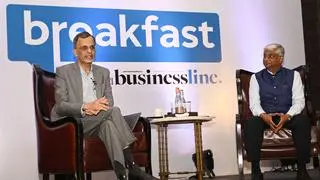In an effort to expedite the decision making process, the Modi Government has announced abolishing all Empowered Group of Ministers (EGoM) and Group of Ministers (GoM).
“This would expedite the process of decision making and usher in greater accountability in the system. The Ministries and Departments will now process the issues pending before the EGoMs and GoMs and take appropriate decisions at the level of Ministries and Departments itself,” a Government statement said on Saturday.
In the previous Government 68 GoMs and 14 EGoMs were constituted to consider issues ranging from gas price to selling shares in Public Sector Undertakings and even mega power projects. At the fag end of UPA Government 20 GoMs and 9 EGoMs were still functional.
The statement also said that wherever the Ministries face any difficulties, the Cabinet Secretariat and the Prime Minister’s Office will facilitate the decision making process. It may be noted that the portfolio allocation for Council of Ministers has listed ‘all important policy issues’ amongst others against the name of the Prime Ministers. Such an allocation has been made for the first time.
EGoMs and GoMs are both inter-Ministerial panel, headed by a senior Cabinet Minister, but there is there is one technical difference. An EGoM can take decision and then it can be consented by the Cabinet while a GoM can recommend which then needs to be approved by the Cabinet. In UPA Government, then Defence and Finance Minister Pranab Mukherjee used to be the master of EGoM and GoM. At one particular time he was heading more than two dozen such committees.
It was always said that when the Government was not willing or having difficulty in taking any decision, the matter used to be referred to committee. These were undermining the chair of the Prime Minister besides creating unnecessary delay. However, even before the formation of Modi Government, it has been clarified that the new Government will be PMO driven and the formal decision of winding up Ministerial committees is seen another step in this regard.
This step is also seen as another move towards ‘Minimum Government, Maximum Governance.’ The new Government has already merged many ministries such as Corporate Affairs with Finance and Housing and Urban Poverty Alleviation with Urban Development. The new council of Minister with 45 members is much smaller than the previous two UPA Governments and even NDA Government.







Comments
Comments have to be in English, and in full sentences. They cannot be abusive or personal. Please abide by our community guidelines for posting your comments.
We have migrated to a new commenting platform. If you are already a registered user of TheHindu Businessline and logged in, you may continue to engage with our articles. If you do not have an account please register and login to post comments. Users can access their older comments by logging into their accounts on Vuukle.